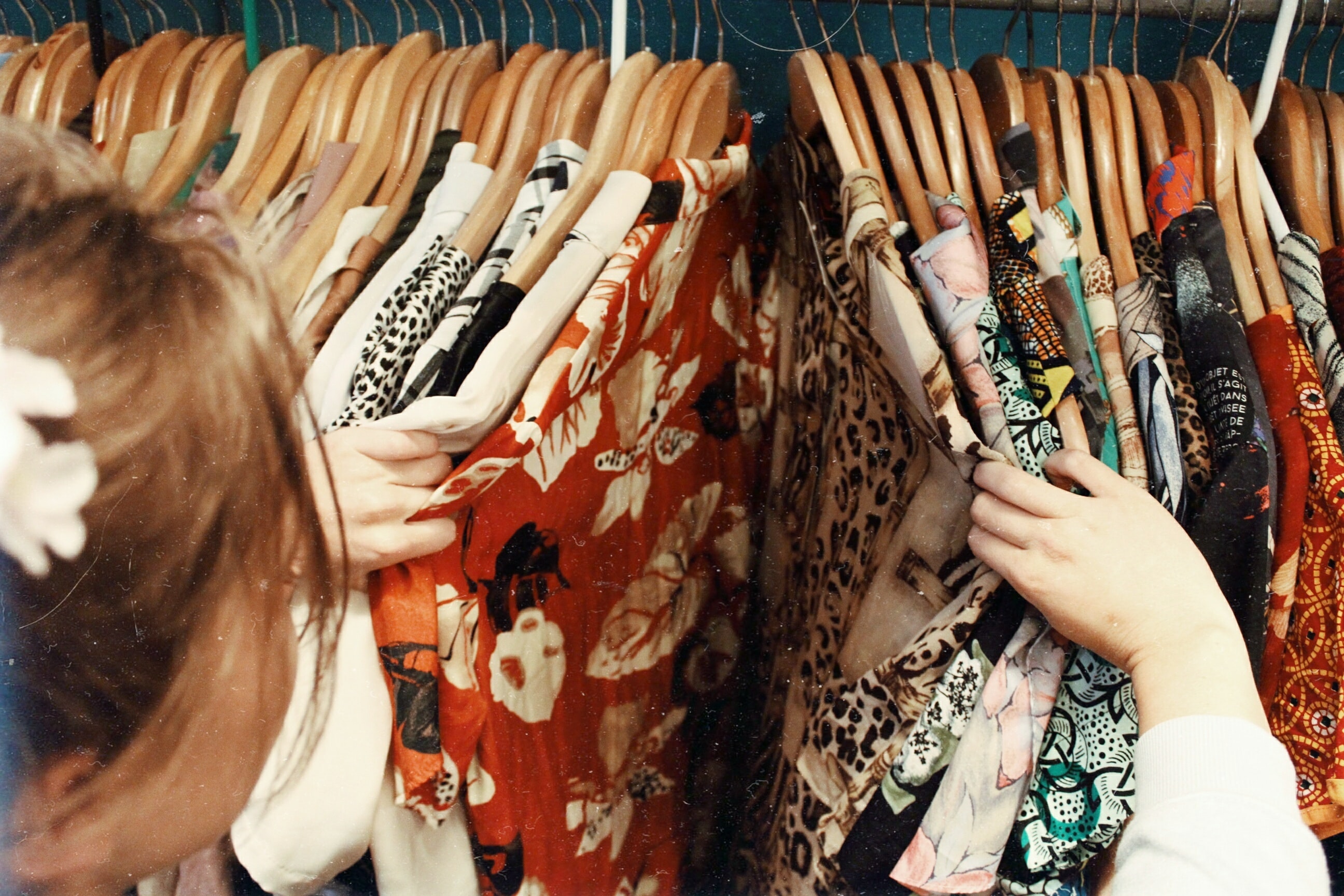I was born in Trinidad and lived there until the age of 7. This one year we were getting ready to attend a family wedding. I was about 5 years old and my dad took me, my mom, and my sister shopping. Money was always tight, so getting to buy a new dress was a special occasion. The first store we went into had these starchy linen dresses, the color and texture of a tea-stained table cloth. They were itchy and unforgiving and not at all what I had envisioned for a new dress.
By the time I was allowed to pick out my own clothes, my fashion taste had evolved into a love for bright florals and lace trimming. My favorite dress in the world was white on top with colored rosettes running down the center and a black-and-white leopard skirt on the bottom. And here was my mom suggesting that we could have our pick from an assortment of burlap sacks seemingly repurposed as dresses.
“Which one are you going to get?”, my sister asked, sliding the hangers over as she looked through a rack of dresses.
“I don’t like any of these,” I said.
“How come?”, she pressed.
“Because they’re made by Black people” I said shrugging my shoulders and wincing as I uttered the last two words. Her eyes widened in disbelief. My sister, two years my senior, promptly informed me that she was going to tell our dad what I had just said.
“No, no, please don’t tell,” I said begging her. But it was no use. She pushed past me ignoring my desperate pleas.
I stood there frozen, wondering what was about to happen. Would my even-tempered father, always loving and affectionate, now fly into a rage? Would he yell at me in the middle of a crowded mall? Would he go silent, piling us into the car as he raced home to dole out my punishment?
I remember my dad coming over and asking me to sit down with him in the food court. I could see him searching for words, thinking about what he should say. After all he had one daughter who was a tattle-tale and the other was a bigot. What surprised me most about my dad was that he wasn’t angry. He was hurt. I had hurt him. I didn’t even know that I could.
“What about Glen, you see him every day. And Ernie, and your cousins, and your aunts and uncles, they’re your family and you love them, right?” my dad said staring at me intently.
What I realize now is that my dad was trying to teach me about anti-Black racism, something that families of color might take for granted. We hear anti-Black sentiments in our families and communities even as we share genes and households with them. My dad grew up in a generation filled with racial strife between people of African and Indian descent. He saw it firsthand in his family, attending his brother’s wedding to a Black woman when no one else would go. My dad wasn’t immune to the bigotry and prejudice around him. He simply rejected the belief that a person was inferior because of their skin color.
My dad was right. I loved my family and friends and they were no different from the salespeople in the store. I wondered why I had said it. I still wonder now. I could chalk it up to the ignorance of being a 5-year old, blissfully unaware of the ramifications of my words and their painful history. I could have said that I didn’t like the dresses or that I wanted something with flowers or leopard print. What I said was shameful. But my dad didn’t scold or shame me. Instead, he held me accountable for my words. He approached me with grace and understanding.
I don’t know if he would have remembered this story the same way. He passed away two years after this eventful trip to the mall. I hope he knows that I still remember it and how grateful I am that he treated me with love and compassion, even when I was unwilling to do the same for someone else.


